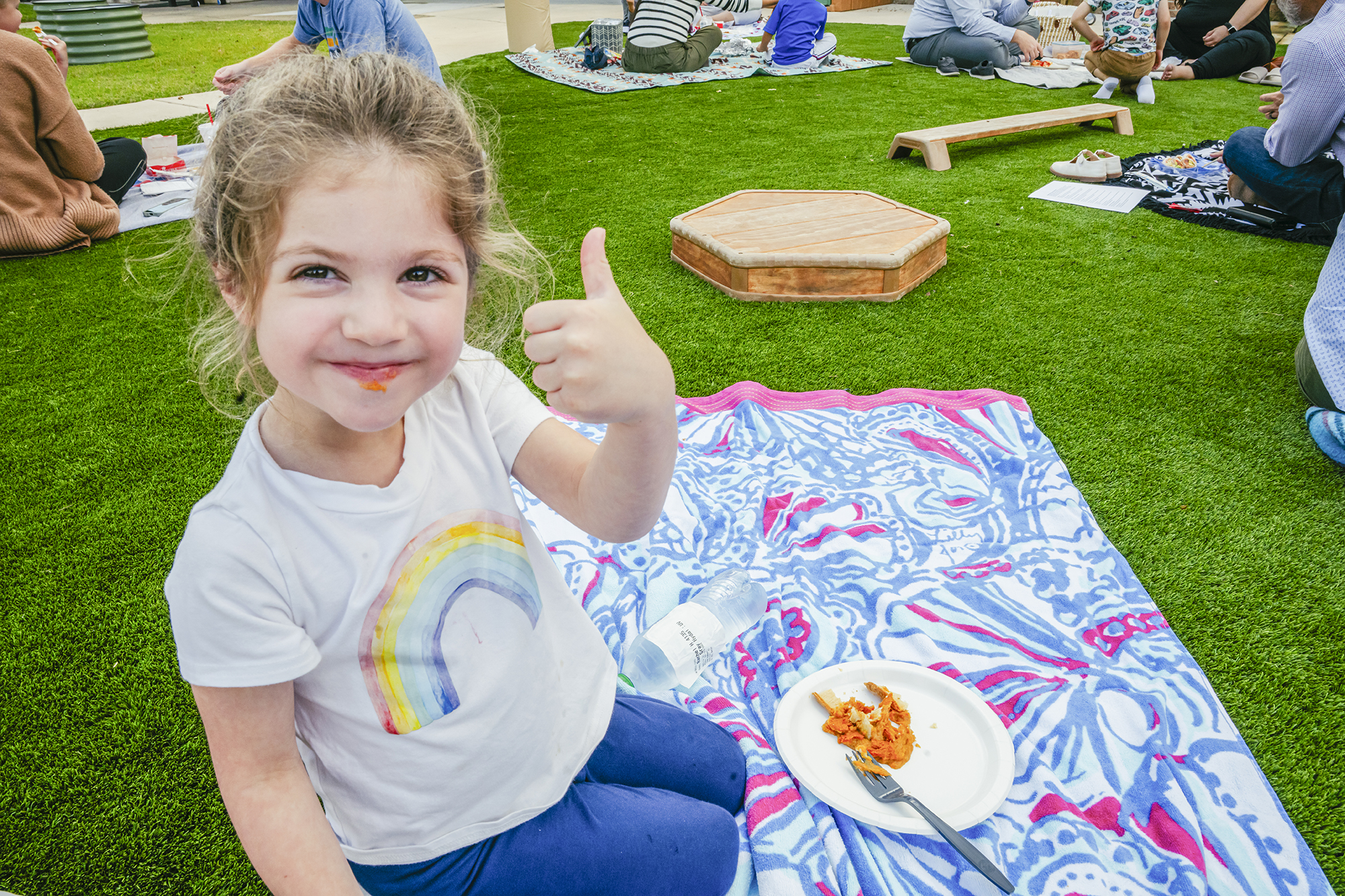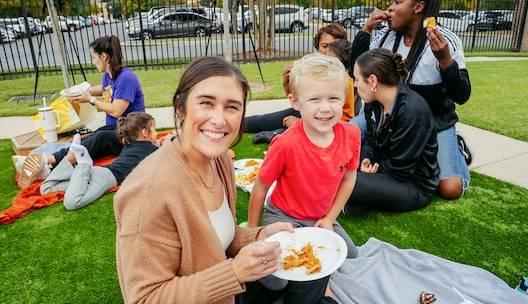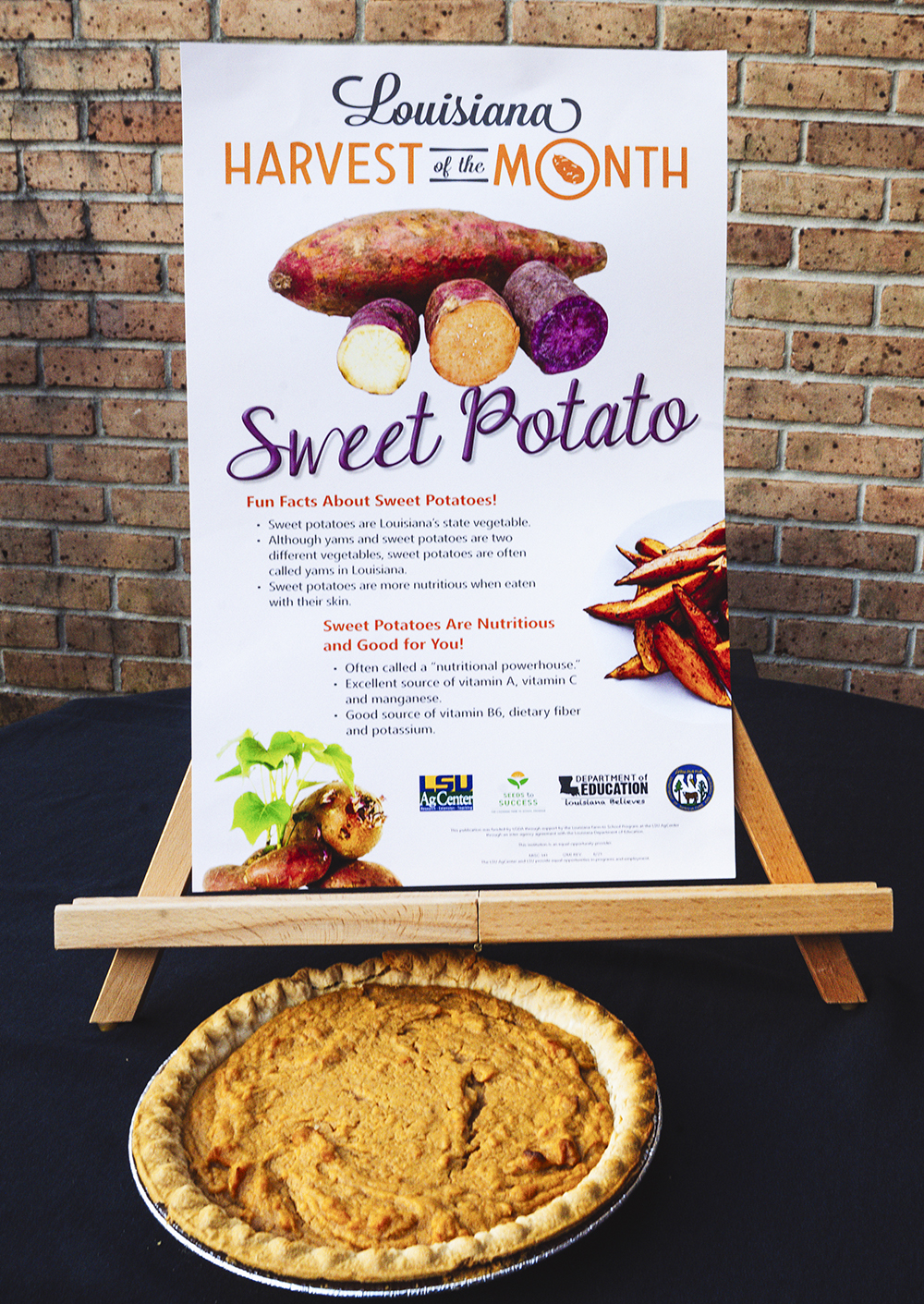Planting the Seeds of Healthy Eating at LSU’s Early Childhood Lab School
November 21, 2025
In Louisiana, food isn’t just something we eat – it's part of our culture and who we are. From gumbo and crawfish boils to weekly family dinners, Louisiana’s identity can always be tied to its local produce, agriculture, and the people who make these unforgettable meals possible.
Seeds to Success: the Louisiana Farm to School Program, a collaboration between the LSU AgCenter and the Louisiana Department of Education, is bringing local foods to area schools. Its Louisiana Harvest of the Month (HOM) program helps Louisiana children connect to where their food comes from while celebrating the state’s agricultural roots. On LSU’s campus, the program brings farm-fresh learning directly into the classrooms of the LSU Early Childhood Education Laboratory Preschool (ECELP).

Each month, participating schools feature one locally grown product through taste tests, classroom lessons, and cafeteria meals—sparking lifelong eating habits.
"Programs like Harvest of the Month support the development of healthy eating habits by introducing children to a variety of nutritious food options at an early age. The program highlights different ways to enjoy these foods through hands-on cooking experiences and engaging recipes. Because young children learn best through active participation, involving them in food preparation encourages curiosity and increases their willingness to try new foods," said Kamille Watson, director of the LSU ECELP.
Each month, participating schools, like the ECELP, feature one locally grown product through taste tests, classroom lessons, and cafeteria meals—sparking lifelong eating habits.

Parents with children attending the LSU ECELP say they are seeing the power of the Louisiana Harvest of the Month program in their own homes.
“Eating behavior evolves in the first few years as children experience new foods and observe others experiencing those same foods,” said Farm to School program manager Tyne Bankester. “When centers engage in farm to school programming, there are positive impacts in student nutrition knowledge and behaviors, while also improving the food service operations and nutrition quality provided to students and staff.”
Bankester said LSU’s ECELP is an example of a major success in modeling early childhood wellness and education.
“As a model demonstration school, ECELP values partnerships that extend our impact on early childhood education. These experiences not only enrich our students’ hands-on learning but also strengthen our home–school connections, as families contribute ingredients and supplies for featured recipes. Our educators have even shared the program’s success at professional conferences, showcasing how these meaningful partnerships elevate both our program and the broader field of early childhood education,” Watson said.

Parents with children attending the LSU ECELP are seeing the power of the program in their own homes.
“It’s a great example of how LSU and the LSU AgCenter make research and education real for families. The program helps kids build healthy habits while giving parents tools they can use at home, too,” said the parent of a 4-year-old preschooler.
The LSU ECELP’s program is year-round. One month this fall, corn was their featured harvest, and the school invited families to share their favorite corn-based recipes, resulting in a class cookbook.
The Harvest of the Month program gives students the chance to create memories with classmates and come home with memorable stories.
One parent said, “My daughter went through a phase where she decided she didn’t like
tomatoes anymore — until lettuce was the harvest of the month. She came home excited
after making a salad with her classmates and proudly told us she ate everything, including
the tomatoes. Now she’s back to eating them again. It’s amazing what a little encouragement
and shared experience can do.”
“Children, especially small children, are often detached from where food comes from,”
Bankester said. “Conversely, children are open to new experiences. If we can expose
them early to fresh, locally grown foods, they are more likely to develop an appreciation
and fondness for these items.
“If we can highlight the connection between the food on their plate, who grew it, and the work it takes to make that cycle possible, children, no matter their age, are able to develop both an appreciation for and connection to the community members growing and providing food for us.”
Next Steps
Let LSU put you on a path to success! With 330+ undergraduate programs, 70 master's programs, and over 50 doctoral programs, we have a degree for you.


